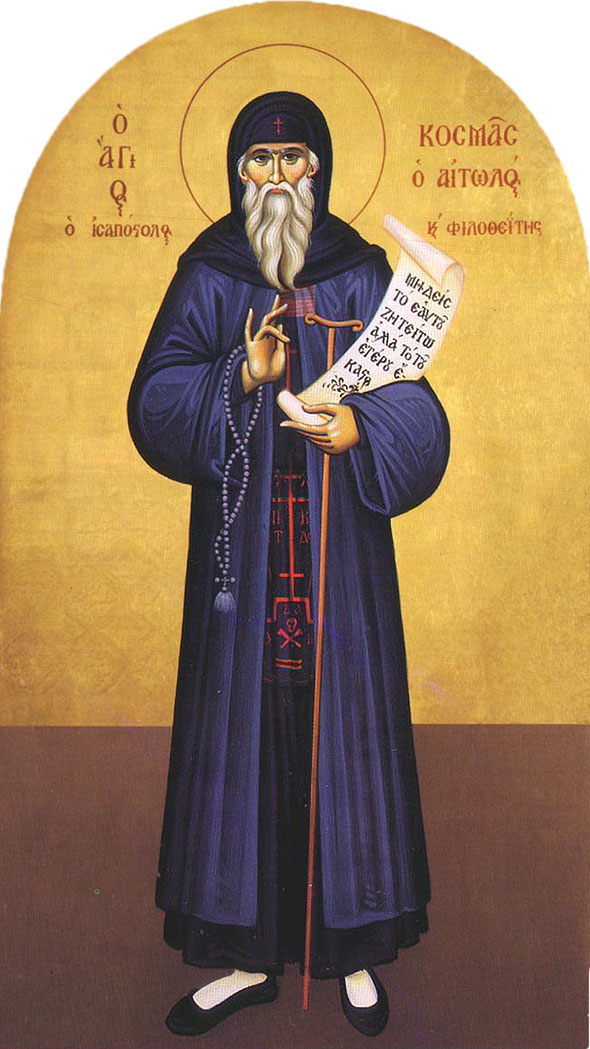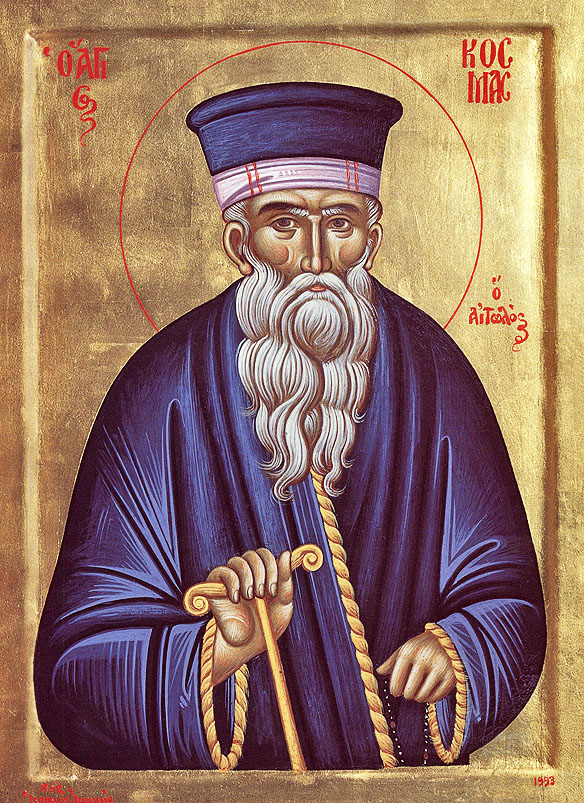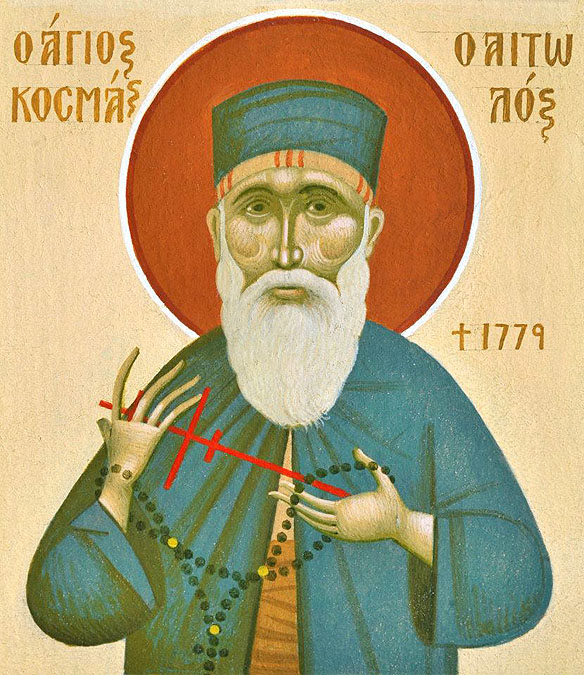A Saint who fought against ignorance: Hieromartyr Cosmas of Aetolia († Dionysios, Metropolitan of Servia and Kozani)
24 Αυγούστου 2016
On the 24th day of the month of August, the Church celebrates and honours the sacred memory of the holy hieromartyr Cosmas Aitolos. Saint Cosmas is one of those saints of the Church who are called New Martyrs and who appeared in the years of Turkish rule. After the Fall of Constantinople, the Turks became the new persecutors of the Church in the East and then many Christians, man and women, preferred to give up their lives rather than convert to Islam. It was these who, through their example, kept alive the Orthodox faith of the subject Orthodox peoples of the East.
Saint Cosmas was born in 1714 in the village of Megalo Dendro, in Aitolia, which is why he’s called “Aitolos” [i.e. “from Aitolia”]. He learned his basic letters and then acted as a teacher in the villages around his birthplace. It was at this time that the Athoniada School was founded on the Holy Mountain and Konstantis, as he was then called, attended and was taught by outstanding teachers. In 1759 he was a monk, with the name Cosmas , and later a priest, at the Monastery of Filotheou on the Holy Mountain. He studied the Scriptures diligently, and one day his attention was drawn to the words of Saint Paul in his first epistle to the Corinthians: “Let no one seek his own [advantage], but that of the other …” (10, 24). But this wasn’t enough for Saint Cosmas, who was greatly concerned on behalf of those who lived outside the monastery.
Those years were among the worst for the subject peoples; illiteracy, ignorance of the Church and a general lack of education reigned everywhere. So Saint Cosmas went to Constantinople, received the blessing and permission of the Patriarch and, in 1760, at the age of 46, began his missionary work. Saint Cosmas spoke to the people later in his homilies about his reasons for leaving the monastery. “I abandoned my own advancement and my own interests and left, to walk from place to place and to teach my brethren”. And, regarding the state of the people then, he also remarked in his homilies: “Don’t you see how our nation has become as fierce as wild animals because of lack of education?”.
Saint Cosmas toured the whole of mainland Greece and the islands four times and went as far as Serbia and Northern Epirus. He was poor and humble and spoke to people in simple language so that they’d all understand him. From village to village he was followed by a host of Christians, including many priests. He always preached in the open air. They would set up a large wooden cross and he would stand on a rock or a stool and speak to the Christians. Many of his teachings have been preserved, as they were recorded by those listening to him, and we can see from them how the saint taught people. His aim was to keep the Christian faith alive and cultivate a national consciousness among the Greeks.
We’ve chosen a few words from Saint Cosmas’ teachings in order to see how he taught and what he said: “Be glad that you’re Orthodox Christians… Be glad that you earn your bread by your own efforts… Let them burn your body, fry it, and take your things. Don’t concern yourselves; give them up; they’re not yours. What you need is your soul and Christ. Those two, and even if everyone falls upon you, they can’t take them away, unless you give them up voluntarily…”. That’s the way Saint Cosmas preached, and at the same time, he encouraged the Christians to build schools. In a letter of his, he writes that he founded two hundred primary and ten Greek schools.
The missionary activity of Saint Cosmas lasted twenty years. Everywhere, he was regarded as a saint, because he also had the gift of prophecy. Along with his teachings, many of prophetic sayings have also been preserved. He spoke symbolically, so that the Turks wouldn’t understand, referring, for example, to “what we desire” rather than the Greek revolution. And even the Turks loved and respected him. Only the Jews hated him, because he opposed their Sunday markets. In the end, the Jews managed to have him condemned to death, and he was hanged on 24 August 1779. His body was thrown into a river, and Christians later took it and buried it with all due reverence in the village of Kolikondasi. His sacred relics remain there to this day. On 20 April, 1961, the Ecumenical Patriarchate officially placed Saint Cosmas among the New Martyrs. Amen.
(+ Metropolitan Dionysios of Kozani, Εικόνες έμψυχοι, Apostoliki Diakonia, pp. 111-113).








